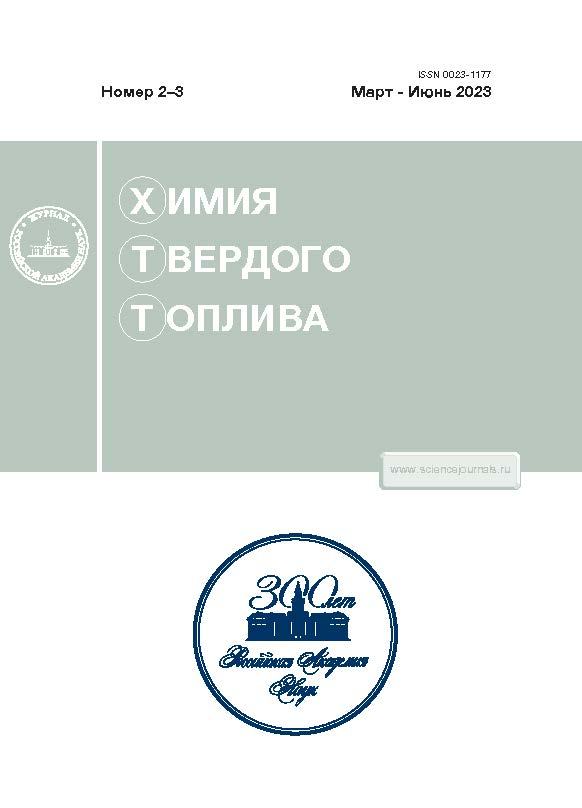Influence of Acid Reagents on Oil Sediment Formation
- 作者: Prozorova I.V.1, Yudina N.V.1
-
隶属关系:
- Institute of Petroleum Chemistry, Siberian Branch, Russian Academy of Sciences
- 期: 编号 2-3 (2023)
- 页面: 59-64
- 栏目: Articles
- URL: https://rjeid.com/0023-1177/article/view/661890
- DOI: https://doi.org/10.31857/S0023117723020123
- EDN: https://elibrary.ru/BPPMVI
- ID: 661890
如何引用文章
详细
The formation of oil sediment in highly paraffinic oil in the presence of carboxylic and naphthenic acids was studied. The influence of the concentration and composition of acids on the process of sediment inhibition and the concentrations of paraffins, resins, and asphaltenes in sediments was demonstrated. In the composition of sediments obtained from oil with the addition of acidic reagents, the amount of light n-alkanes increased and the fraction of higher molecular weight hydrocarbons decreased. The concentrations of aliphatic fragments and carboxyl groups in the resins of sediments obtained with the addition of acidic reagents decreased, and the aromaticity coefficient increased. Asphaltenes in the sediment were characterized by a decrease in the concentrations of aromatic structures and carboxyl groups.
作者简介
I. Prozorova
Institute of Petroleum Chemistry, Siberian Branch, Russian Academy of Sciences
Email: piv@ipc.tsc.ru
Tomsk, 634055 Russia
N. Yudina
Institute of Petroleum Chemistry, Siberian Branch, Russian Academy of Sciences
编辑信件的主要联系方式.
Email: natal@ipc.tsc.ru
Tomsk, 634055 Russia
参考
- Zahedi-Nejad, Bahrami M., Torkaman M., Ghayyem M. // J. Petrol. Sci. Eng. 2021. V. 205. № 10. P. 108858. https://doi.org/10.1016/j.petrol.2021.108858
- Daniel Molina V., Emiliano Ariza León, Arlex Chaves-Guerrero // Energy Fuels. 2017. V. 31. № 9. P. 8997. https://doi.org/10.1021/acs.energyfuels.7b01149
- Sun W., Wang W, Gu Y., Xu X., Gong J. // Fuel. 2017. V. 191. P. 106. https://doi.org/10.1016/j.fuel.2016.11.063
- Wattana P., Fogler H.S., Yen A. // Energy Fuels. 2005. V.19. № 1. P. 101. https://doi.org/10.1021/ef0499372
- Jung T., Kim J-N., Kang P-S. // Korean J. Chem. Eng. 2016. V. 33. P. 1813. https://doi.org/10.1007/s11814-016-0052-3
- Hosseini-Moghadam S.M.-A., Zahedi-Nejad A., Bahrami M., Torkaman M., Ghayyem M.-A. // Petrol. Sci. Eng. 2021. V. 205. № 10. P. 108858.https://doi.org/10.1016/j.petrol.2021.108858
- Ghloum E.F., Rashed A.M., Safa M.A., Sablit R.C., Al-Jouhar S.M. // Petrol. Sci. Eng. 2019. V. 175. № 4. P. 495. https://doi.org/10.1016/j.petrol.2018.12.071
- Faraoun Abbassia, Mortada Daaou, Bounaceur Boumediene // Energy Sources. 2016. Part A: Recovery, Utilization and Environmental Effects. V. 38. № 19. P. 2830. https://doi.org/10.1080/15567036.2015.1017671
- Yang F., Zhu H., Li C., Yao B. // Petrol. Sci. Eng. 2021. V. 204. № 7. P. 108723. https://doi.org/10.1016/j.petrol.2021.108723
- Razipour M., Samipour Giri M., Majidian N. // Energy Sources. Part A: Recovery. Util. Environ. Effects. 2020. V. 17. № 4. P. 1. https://doi.org/10.1080/15567036.2020.1752332












